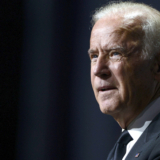American Youth Challenge Traditional Views on Wars, Advocating for Peace and Disarmament
In a stark departure from historical trends, a growing number of young Americans are rejecting the age-old narrative that underpins their nation’s support for wars, particularly in the context of Israel’s actions in Gaza. The results of a December New York Times/Siena College poll reveal a significant generational divide, with younger citizens expressing heightened criticism of Israel’s conduct and the U.S. administration’s response to the conflict.
Among Americans aged 18 to 29, 46% sympathize more with the Palestinians, compared to just 27% who express the same sentiment for Israel. This contrast in views becomes even more pronounced as age increases. The poll suggests that younger generations are increasingly skeptical of Israel’s commitment to peace with the Palestinians, with nearly half believing that Israel is intentionally killing civilians.
The disillusionment among the youth extends to the government’s handling of international affairs, particularly its perceived “blind loyalty” to Israel and Ukraine. Keesha Middlemass, a political scientist at Howard University, notes that young people are now witnessing the tangible impact of the United States’ military interventions, leading them to question the government’s allegiances.
The influence of social media, especially platforms like TikTok, has played a significant role in shaping the opinions of the younger demographic. Users of TikTok, in particular, have been vocal in their criticism of the Biden administration’s policies towards Israel, and Ukraine, utilizing the platform to share on-the-ground perspectives that are absent from mainstream media coverage.
The divide is not limited to the broader American population but is also evident among Jewish youth. The younger generation, often viewing Israel as an occupying force, stands in contrast to their parents and grandparents who perceive it as an essential haven fighting for survival. This shift in perspective, as illustrated by individuals like Louisa Kornblatt, signifies a broader trend where younger Jews question the establishment of the state of Israel based on principles of exclusivity.
Moreover, African American youth, a key demographic that contributed to President Biden’s election, is expressing disillusionment with his approach to international conflicts. For many, Biden’s perceived warmongering signals a failure to prioritize domestic issues, particularly the fight against racism. The Black-Palestinian solidarity, rooted in historical connections, is gaining prominence, with young African Americans challenging Biden’s support for Israel as well as Ukraine.
The sentiment among Black voters, as revealed in polls, indicates a significant shift. A substantial portion is sympathetic towards Palestinians, signaling a departure from traditional allegiances. The influence of leaders like Malcolm X, who condemned the mixing of Judaism, Zionism, and colonialism, continues to resonate among Black communities.
As we witness this evolution in perspectives, it becomes clear that the younger generation in America is advocating for a more secure world through disarmament. The rejection of traditional pro-war narratives, reflects a growing awareness among the youth that lasting peace necessitates a departure from historical patterns of conflict.






